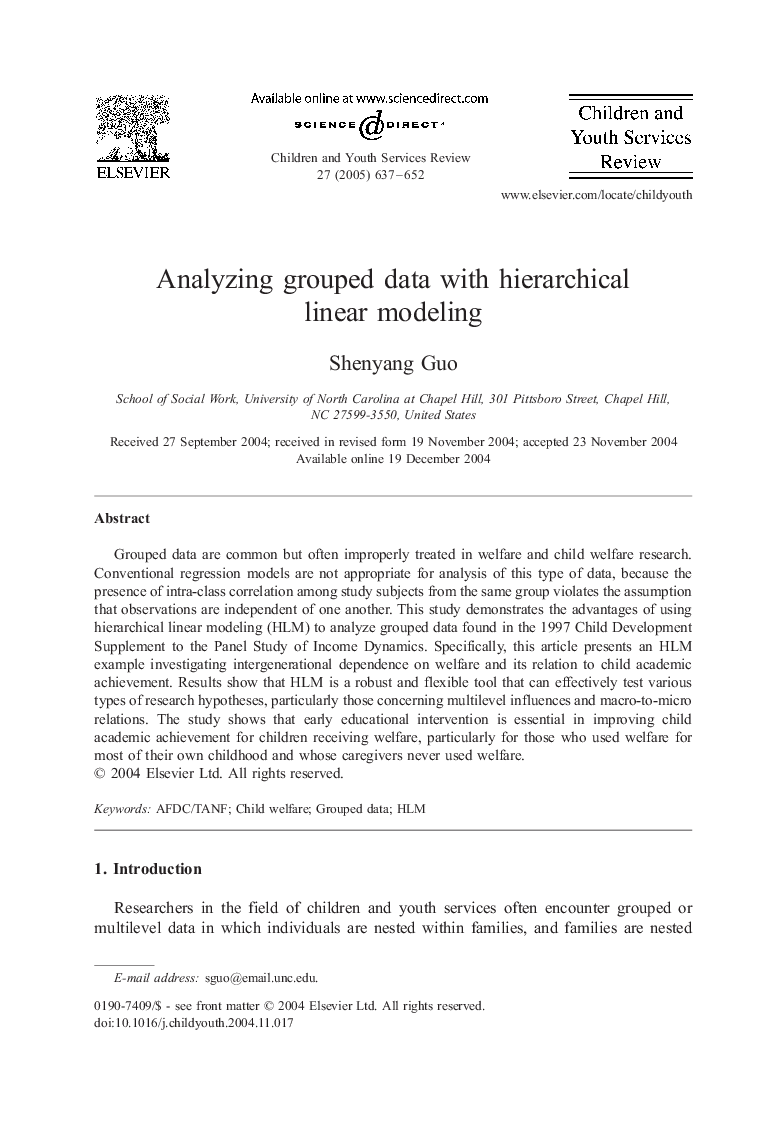| Article ID | Journal | Published Year | Pages | File Type |
|---|---|---|---|---|
| 10311859 | Children and Youth Services Review | 2005 | 16 Pages |
Abstract
Grouped data are common but often improperly treated in welfare and child welfare research. Conventional regression models are not appropriate for analysis of this type of data, because the presence of intra-class correlation among study subjects from the same group violates the assumption that observations are independent of one another. This study demonstrates the advantages of using hierarchical linear modeling (HLM) to analyze grouped data found in the 1997 Child Development Supplement to the Panel Study of Income Dynamics. Specifically, this article presents an HLM example investigating intergenerational dependence on welfare and its relation to child academic achievement. Results show that HLM is a robust and flexible tool that can effectively test various types of research hypotheses, particularly those concerning multilevel influences and macro-to-micro relations. The study shows that early educational intervention is essential in improving child academic achievement for children receiving welfare, particularly for those who used welfare for most of their own childhood and whose caregivers never used welfare.
Keywords
Related Topics
Health Sciences
Medicine and Dentistry
Perinatology, Pediatrics and Child Health
Authors
Shenyang Guo,
